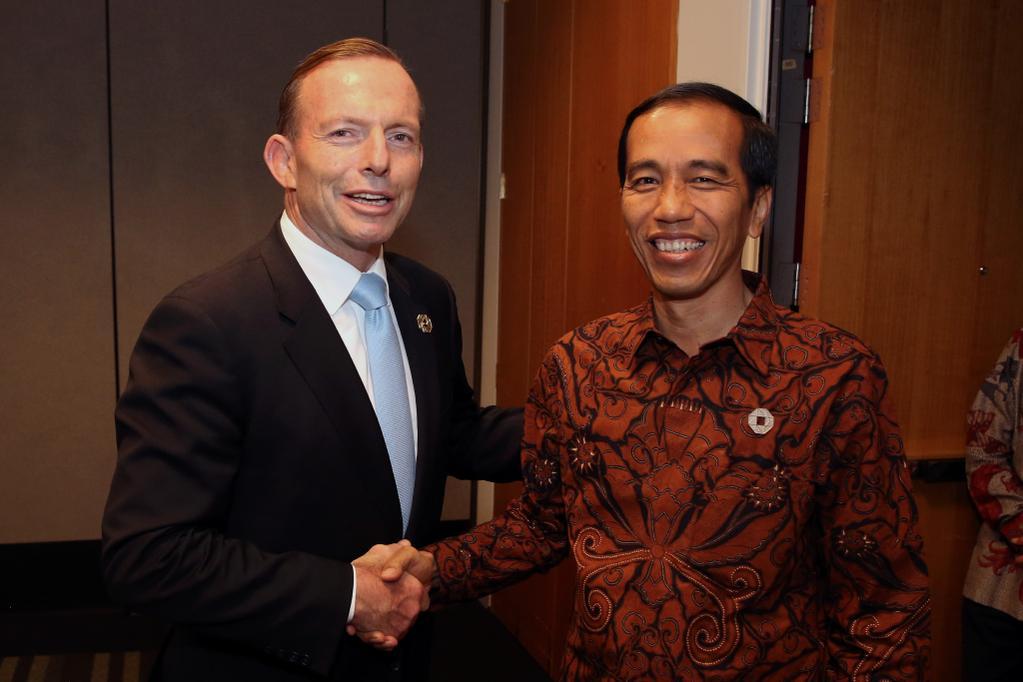Australia and Indonesia: will it always be like this?
Posted By Peter Jennings on April 29, 2015 @ 15:04
Following the executions of Andrew Chan and Myuran Sukumaran last night, it doesn’t pay to let hurt or anger drive one’s thinking about Australia–Indonesia ties. Those who care about the relationship—mostly politicians and officials, not too many ‘average’ citizens in either country—must despair for future prospects. Is it always going to be like this?
A succession of spats and public differences over live cattle trade, spying allegations, turning back the boats and executions have meant that, for half a decade, the relationship has faced repeated crises. Looking further back, it’s clear that our relations since Indonesia’s independence in 1945 have been marked by even deeper problems. Australia spent much of the 1950s and early ‘60s deeply worried about Indonesian susceptibility to Communism. Konfrontasi in the 1960s saw us fighting a counterinsurgency war against Jakarta over Malaysia’s independence. Indonesia’s incorporation of West Papua in 1962 and East Timor in 1975 created deep and lasting instabilities in our nearer region.
Under Suharto, systemic corruption inhibited the development of deep government-to-government relations. The best Paul Dibb’s 1986 Review of Australia’s Defence Capabilities could publicly say [2] about Indonesia was that it was the area ‘from or through which a military threat to Australia could most easily be posed’. Dibb was making a point about geography, but there was little warmth in the political relationship to offset that hard strategic reality. The Timor crisis of 1999 again put Canberra–Jakarta relations into the deep-freeze. It took the 2004 tsunami and the leadership skills of John Howard and Susilo Bambang Yudhoyono to steer relations to a better place. We may look back on that period of warmth as one of the truly positive periods in an otherwise difficult partnership.
Fast forward to more recent times, the Defence White Paper 2013 [3] was deeply invested in Australia–Indonesia ties:
‘Australia’s longstanding partnership with Indonesia remains our most important defence relationship in the region. In addition to shared security challenges, Australia and Indonesia maintain a common commitment to regional security, which is reflected in our wider governmental strategic partnership. Indonesia’s importance to Australia will grow as its significant regional influence becomes global. Indonesia’s success as a democracy and its economic growth will see it emerge as one of the world’s major economies. Its proximity to Australia and leadership role in ASEAN will continue to increase its importance to us as a security partner.
In recent years, Australia’s defence relationship with Indonesia has developed significantly through a practical and effective engagement program. … The Government is committed to further broadening and deepening our defence and security cooperation with Indonesia, including through greater engagement between areas of our defence organisations and our defence industries, and closer and more comprehensive strategic dialogue.’
Those paragraphs may describe what Australian governments want with Indonesia, but they don’t accurately reflect the substance of our bilateral relationship. Partnership? Indonesian leaders don’t always take the Prime Minister’s calls. Most important defence relationship in the region? Jakarta is certainly important but when it comes to genuine partnership we’re actually closer to Singapore or New Zealand. Shared security challenges, and practical and effective engagement programs? There has been valuable cooperation on policing, intelligence exchange and in some defence contacts. These links were established after the Bali bombings—a time when both countries truly shared a common interest in cooperating.
The references to Indonesia’s regional and global leadership in the 2013 Defence White Paper are highly aspirational. ASEAN and Australia would welcome an Indonesia willing and able to lead coherent responses to regional security issues. On the global stage President Widodo’s standing has taken a hit as a result of his handling of the capital punishment issue. For the moment Indonesia is inward looking with little sign that Jakarta is about to establish a global leadership position for itself.
Bilateral relations will be in stasis for some time. The withdrawal of Australian Ambassador Paul Grigson and a halt to Ministerial contact may last only a few weeks or months, but the unhappiness in both capitals suggest that it will take much longer—or a jolting crisis like another terrorist attack in Bali—before we again see closer cooperation.
Will Australia and Indonesia ever develop the closer strategic partnership that the Defence White Paper 2013 envisioned? As Yogi Berra said, ‘the future ain’t what it used to be.’ Nothing in the first seventy years of the relationship suggests that the next seventy will be much easier. A lot potentially flows from this conclusion, including the content of the cooperation we try to advance with Indonesia and the manner of our contact. Our policy settings must encompass the possibility of closer bonds and of continuing estrangement. More realism and tempered aspirations should be the order of the day.
Article printed from The Strategist: https://aspistrategist.ru
URL to article: /australia-and-indonesia-will-it-always-be-like-this/
URLs in this post:
[1] Image: https://aspistrategist.ru/wp-content/uploads/2015/04/B2ZLDO1CUAAy-9e.jpg
[2] say: http://www.defence.gov.au/SE/publications/defreview/1986/Review-of-Australias-Defence-Capabilities-1986_Part1.pdf
[3] Defence White Paper 2013: http://www.defence.gov.au/whitepaper/2013/docs/WP_2013_web.pdf
Click here to print.
